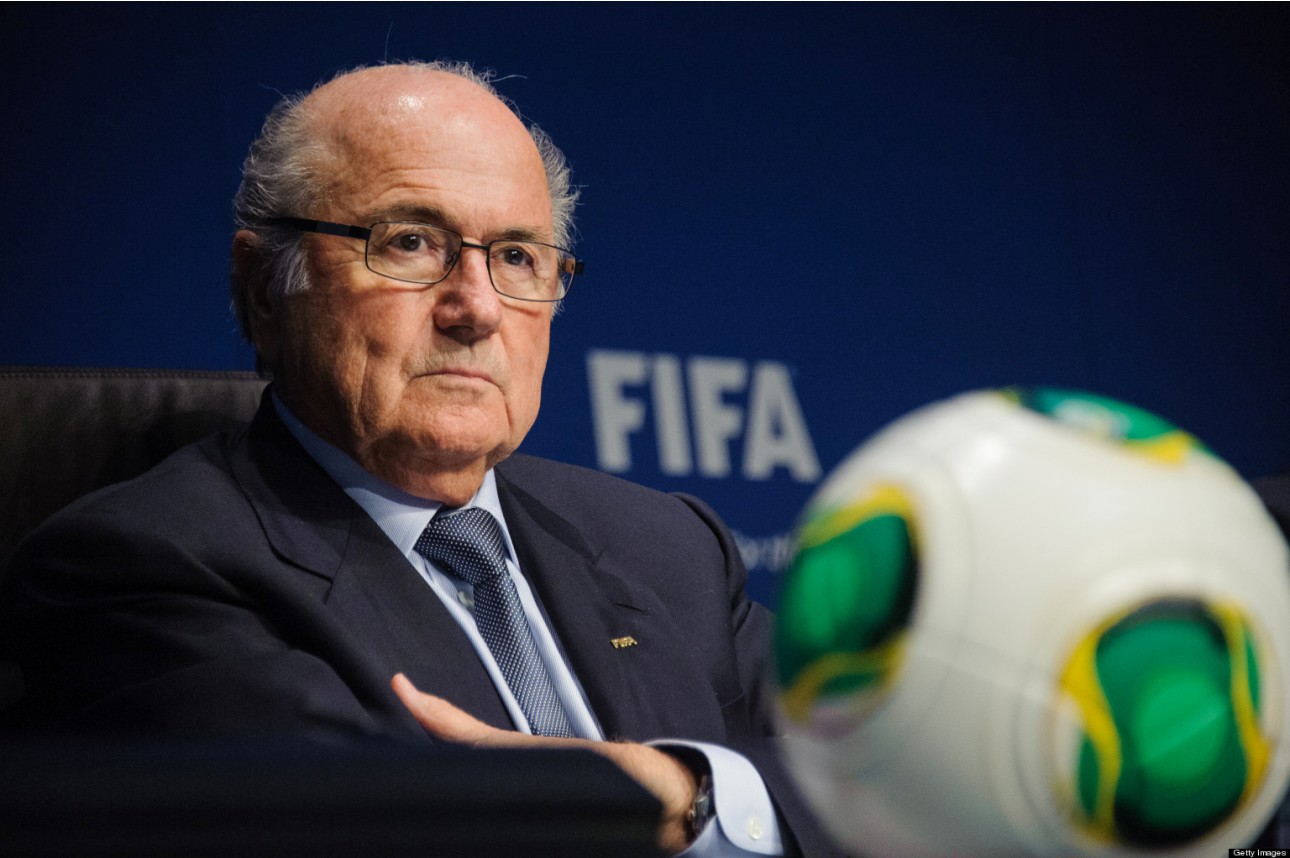 FIFA president Sepp Blatter said Sunday that more must be done to protect migrant workers building Qatar’s World Cup stadiums and other mega projects despite the Gulf state’s emir giving a “personal commitment” to their welfare.
FIFA president Sepp Blatter said Sunday that more must be done to protect migrant workers building Qatar’s World Cup stadiums and other mega projects despite the Gulf state’s emir giving a “personal commitment” to their welfare.
Blatter and Emir Tamim bin Hamad Al-Thani held 90 minutes of talks at the Al Bahr palace ahead of a FIFA executive committee meeting on Thursday and Friday to decide the final dates for the 2022 World Cup.
The tournament will be the first to be held in November-December because of Qatar’s scalding summer temperatures.
“It was important for me to have an opportunity to get the latest information directly from the highest political authority, ahead of the executive committee next week,” said Blatter.
“As various human rights groups have recently noted, progress has been made already, especially with regard to the standards introduced by the Supreme Committee relating to 2022 construction sites, but more must be done in Qatar to ensure uniformly fair working conditions for all.”
Blatter added this would only be possible through the “collective effort of all stakeholders”.
This included construction companies, said Blatter, who added that the World Cup could become a catalyst for social change in the tiny Gulf kingdom.
“It is encouraging to hear the emir’s personal commitment to workers’ welfare and to get a sense of the improvements planned for all workers in Qatar,” said the FIFA leader who returned to Zurich after the meeting.
Blatter did not visit any construction sites. FIFA said that was the responsibility of secretary-general Jerome Valcke, who was in Doha last month, and at the time visited some of the sites.
Human rights groups have backed Qatari reforms in recent weeks, especially the proposed move to electronic payments, which should ensure many staff get paid on time.
However, there is concern that reforms are not moving fast enough.
Human Rights Watch (HRW) and Amnesty International have called on Qatar to speed up efforts to reform the controversial “kafala” sponsorship system, which enables employers to prevent foreign workers from leaving the country or changing jobs and has been likened to modern-day slavery.
They have also cited the confiscation of passports by employers, workers not being issued an exit visa so they can leave Qatar if they wish, and migrant labourers having to pay recruitment fees.
– ‘Vague platitudes’ –
In response to Sunday’s meeting, Amnesty’s head of business and human rights, James Lynch, said it was “good to hear Sepp Blatter finally being clear about the need for change but we need to see him using his influence to press for specific reforms”.
HRW’s Gulf researcher, Nicholas McGeehan, said migrant labourers needed more than words.
“Blatter should be pressing hard on key issues and making it clear what FIFA expects but vague platitudes aside, FIFA has never given any indication it takes this problem seriously,” said McGeehan.
Earlier this month, Qatar said it would more than double the number of migrant labourers in the country to 2.5 million by 2020.
Sheikh Nasser bin Abdulrahman bin Nasser al-Thani, a senior member of the royal family and chairman of the Daruna conglomerate, told a business conference in Doha that the number of workers would reach “2.5 million within three to five years”.
It is estimated that there are anywhere between 700,000 and one million migrant workers in the tiny Gulf kingdom, out of a total population of 2.3 million.
FIFA said the emir and Blatter also discussed the probable moving of the World Cup to the end of 2022.
A FIFA meeting in Doha in February recommended switching the World Cup from its traditional dates of June and July to November and December because of Qatar’s climate. – Agence France-Presse



































